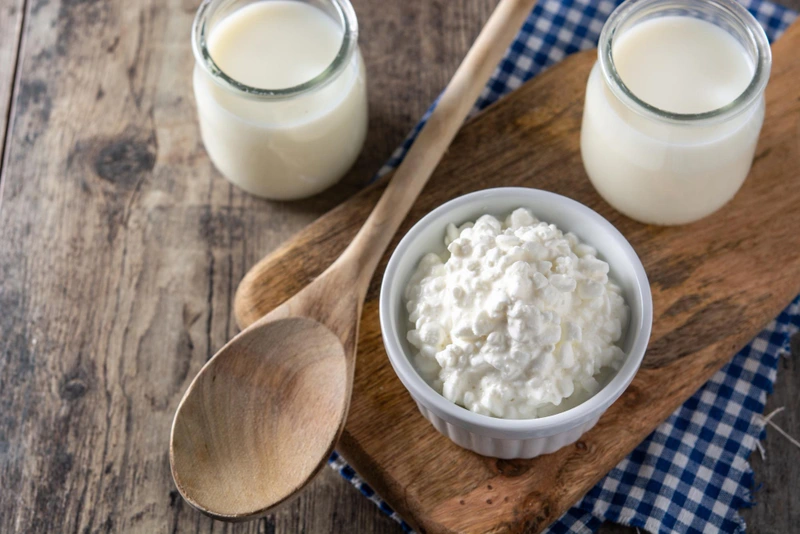- Published on: Jul 17, 2023
- 2 minute read
- By: Secondmedic Expert
Exploring The Importance Of OPD Coverage In Health Insurance
In the realm of medical expenses, outpatient costs usually pale in comparison to inpatient expenses. However, a recent study conducted by ET Prime sheds light on a surprising revelation - outpatient department (OPD) expenses account for approximately 62% of healthcare costs in India. As healthcare expenses continue to soar, it becomes crucial to consider health insurance plans that include comprehensive OPD coverage. This article aims to provide readers with a thorough understanding of OPD coverage in health insurance and the associated benefits.
Understanding OPD Coverage in Health Insurance
OPD coverage within health insurance pertains to situations where individuals require medical attention without the need for hospitalization. This coverage acts as a financial safeguard, protecting policyholders from the financial burdens associated with OPD-related treatments and consultations. OPD treatments can be received by visiting a doctor's clinic and paying the consultation fees. Alternatively, hospitals may provide support and medical assistance through their general OPD ward.
Virtually all health insurance companies offer a variety of plans that incorporate OPD treatments. OPD coverage is designed to cater to expenses that are not covered during inpatient hospitalization.
Advantages of OPD Coverage in Health Insurance Plans
Let us delve into the advantages associated with having OPD coverage within health insurance plans:
1. Claiming Medical Expenses: OPD coverage allows individuals to claim medical expenses incurred without the need for hospitalization, thus providing much-needed financial relief.
2. Coverage for Diagnostic Charges, Consultation Fees, and Pharmacy Bills: Comprehensive OPD coverage encompasses diagnostic charges, doctor's consultation fees, and pharmacy bills, ensuring individuals receive holistic medical support.
3. Essential for Regular OPD Visits: For those who require frequent OPD visits due to ongoing medical conditions, OPD coverage becomes indispensable for effectively managing associated expenses.
4. Tax Savings: OPD coverage can contribute to tax savings, providing an additional financial advantage for policyholders.
Eligibility Criteria for OPD Coverage
Eligibility criteria for OPD coverage are not universally defined but depend on the specific health insurance plan an individual purchases. If a health insurance plan includes OPD expenses, the policyholder can avail themselves of all the associated benefits.Inclusions of
OPD Cover in Health Insurance
- OPD coverage typically encompasses the following aspects within health insurance plans:
- Doctor consultations
- OPD treatments
- Dental treatments
- Vaccinations
- Pharmacy expenses
- Diagnostic tests
Exclusions Under OPD Cover in Health Insurance
While OPD coverage provides comprehensive benefits, it is important to be aware of exclusions. The following items are generally excluded from OPD coverage in health insurance:
- Treatments related to purification, beautification, panchakarma, detoxification, etc.
- Expenses for lenses, spectacles, hearing aids, implants, prosthetic devices, braces, etc.
- Treatment received outside the country.
- Preventive health check-ups.
- Investigational experiments.
- Investigational treatments.
- Infertility and sterility-related conditions.
- Complications arising from pregnancy, miscarriage, etc.
OPD Treatment vs. Daycare Treatment
Although OPD treatment and daycare treatment share similarities, there are important technical distinctions between the two:
- Daycare Treatment:
- Requires hospitalization for less than one day.• Settlement of claims is honored only for hospitalizations lasting up to 24 hours.
- OPD Treatment:
- Does not require hospitalization.
- Settlement of claims is honored even without hospitalization.
Outpatient Treatment vs. Inpatient Treatment
Outpatient treatments and inpatient treatments differ significantly from each other. Let us explore the differences between OPD and IPD treatments:
Outpatient Treatment:
- No hospital admission required.
- Does not necessitate hospitalization.
- Inpatient Treatment:
-
Requires hospitalization for more than one day.
- Individuals must be admitted to the hospital for the duration of the treatment.
Reasons to Consider Health Insurance Plans with OPD Coverage
Obtaining a health insurance plan with OPD coverage offers numerous advantages. Considering the increasing trend of consultations and OPD treatments, the following individuals should contemplate purchasing health insurance plans that include OPD coverage:
• Individuals aged between 25 to 40 years.
• Senior citizens.
• Retired individuals.
• Fitness enthusiasts.
By comprehending the significance of OPD coverage within health insurance plans, individuals can make informed decisions about their healthcare needs, ensuring both medical support and financial security.
Read FAQs
A. OPD coverage in health insurance refers to the inclusion of benefits for outpatient department visits, medical expenses, diagnostic tests, doctor consultations, and pharmacy bills.
A. OPD coverage provides financial protection for medical expenses incurred without hospitalization, including consultation fees, diagnostic charges, and pharmacy bills. It helps manage healthcare costs effectively and offers tax savings in some cases.
A. OPD coverage usually includes doctor consultations, OPD treatments, dental treatments, vaccinations, pharmacy expenses, and diagnostic tests within the health insurance plan.
A. Exclusions under OPD coverage may vary, but common exclusions include treatments related to purification, beautification, investigational experiments, infertility and sterility-related conditions, and complications arising from pregnancy or miscarriage.
A. OPD treatment does not require hospitalization and claims can be settled without hospitalization. Daycare treatment requires hospitalization for less than one day, while inpatient treatment requires hospitalization for more than one day.
A. Individuals aged between 25 to 40 years, senior citizens, retired individuals, and fitness enthusiasts should consider health insurance plans with OPD coverage to effectively manage their healthcare expenses and ensure financial security.
Our Services
Request A Callback
Recent Posts
Is Curd Good or Bad for Acidity?
Aug 02,2025
Can Fatty Liver Be Reversed Completely?
Jul 31,2025
How Your Sleep Schedule Affects Digestion
Jul 28,2025
How to Spot Signs of Hormonal Imbalance in Men
Jul 26,2025
Do You Need a Digital Detox? Signs and Symptoms
Jul 25,2025










